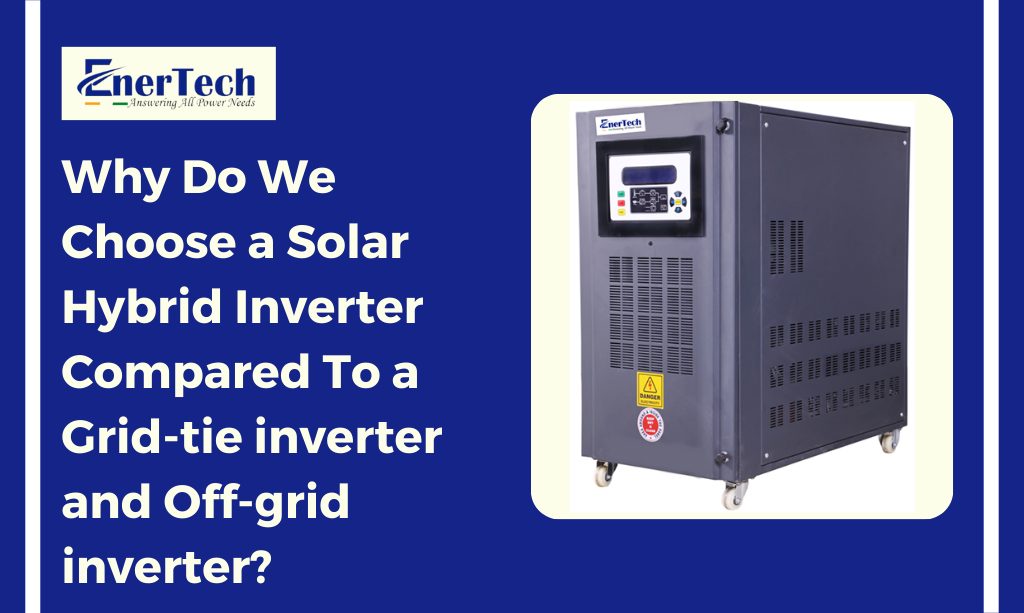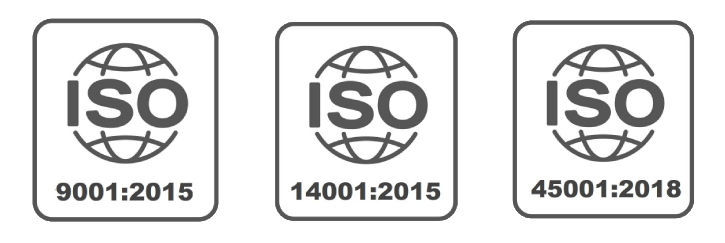Choosing a Solar Hybrid Inverter: A Comprehensive Guide
In the dynamic landscape of renewable energy, the choice of the right solar inverter plays a pivotal role in harnessing the full potential of solar power. As we navigate the options available, it’s essential to understand the key distinctions between solar hybrid inverters, grid-tie inverters, and off-grid inverters. In this guide, we’ll explore the advantages of opting for a solar hybrid inverter and why it might be the ideal choice for your energy needs.
Understanding Solar Inverters
Definition of Solar Inverters:
Solar inverters are the unsung heroes of any solar power system. Their primary function is to convert the direct current (DC) electricity generated by solar panels into alternating current (AC) electricity, which is suitable for powering our homes and businesses.
Types of Solar Inverters
1. Grid-Tie Inverters:
Grid-tie inverters are designed to synchronize with the utility grid. They enable solar power system owners to feed excess electricity back into the grid, often resulting in credits or compensation. While grid-tie inverters are beneficial for reducing electricity bills, they are dependent on a stable grid connection.
2. Off-Grid Inverters:
Off-grid inverters, on the other hand, are built for standalone solar power systems. These systems operate independently of the utility grid and are commonly used in remote areas where grid connections are unavailable. While off-grid solar inverters provide energy independence, they come with the challenge of relying solely on stored energy.
3. Solar Hybrid Inverters:
Enter the solar hybrid inverter, a versatile solution that combines the strengths of both grid-tie and off-grid inverters. These inverters not only enable you to harness solar power and sell excess energy to the grid but also provide a seamless transition to off-grid mode during power outages or in areas without a grid connection.
Request Quote: Off Grid Solar Inverter: Range – 5KVA to 600KVA, Phase – 1 Phase and 3 Phase
Why choose solar hybrid inverter compared to a Grid-Tie Inverter and Off-Grid Inverter?
| Feature | Solar Hybrid Inverter | Grid-Tie Inverter | Off-Grid Inverter |
| Functionality | Combines grid-tie and off-grid capabilities | Feeds surplus energy back to the grid | Designed for standalone off-grid systems |
| Grid-Tie Capability | Yes (can feed excess energy back to the grid) | Yes | No (does not connect to the grid) |
| Off-Grid Capability | Yes (seamless transition during power outages) | No (dependent on grid availability) | Yes (works independently of the grid) |
| Battery Storage Integration | Yes (compatible with many battery systems) | Typically no | Yes (essential for storing excess energy) |
| Flexibility | High flexibility in various energy scenarios | Limited to grid-tied applications | Limited to off-grid applications |
| Cost | Moderate | Lower (No need for batteries) | Moderate to High (Batteries add cost) |
| Suitability | Ideal for areas with intermittent power supply | Ideal for reducing electricity bills | Ideal for remote areas without grid access |
| Environmental Impact | Reduces reliance on fossil fuels, supports a greener grid | Depends on the grid’s energy sources | Reduces reliance on traditional power sources |
Benefits of Solar Hybrid Inverters
1. Energy Independence:
One of the standout advantages of solar hybrid inverters is the ability to generate and store your own power. This feature enhances energy independence, reducing reliance on the grid and providing a reliable power source even in adverse conditions.
2. Grid-Tie Functionality:
Hybrid solar inverters allow you to contribute to a greener grid by feeding surplus energy back into the utility grid. This not only lowers your electricity bills but also supports the overall sustainability of the energy ecosystem.
3. Off-Grid Capability:
In the event of a grid outage, solar hybrid inverters seamlessly switch to off-grid mode, ensuring a continuous power supply. This feature is particularly valuable in areas prone to power disruptions or for those seeking complete autonomy from the grid.
4. Battery Storage Integration:
Many hybrid solar inverters are designed to integrate with battery storage systems. This capability enables efficient energy management by storing excess energy for later use, further optimizing your solar power system.
Considerations When Choosing a Solar Hybrid Inverter
1. System Size and Capacity:
Ensure that the capacity of your solar hybrid inverter aligns with the size of your solar panel system. This ensures optimal performance and efficient energy conversion.
2. Battery Compatibility:
If you plan to integrate battery storage, choose a hybrid solar inverter that is compatible with your preferred battery system. This ensures seamless integration and maximizes the benefits of energy storage.
3. Monitoring and Control Features:
Look for solar hybrid inverters with advanced monitoring and control features. These features empower you to monitor the performance of your system and make adjustments for optimal efficiency.
Learn More: How Batteryless Solar Hybrid Inverters is Better Than Grid Tie Inverter
Conclusion
In the quest for sustainable energy solutions, the solar hybrid inverter emerges as a well-rounded choice, offering the best of both grid-tie and off-grid worlds. By providing energy independence, grid-tie functionality, off-grid capability, and battery storage integration, hybrid solar inverters are proving to be a game-changer in the realm of solar power systems.
Do you want to know solar hybrid inverter price in India? Please email us at sales@enertechups.com to discover more about our best solar inverters. As responsible and concerned best solar hybrid inverter manufacturers in India, we’d be happy to help you.




